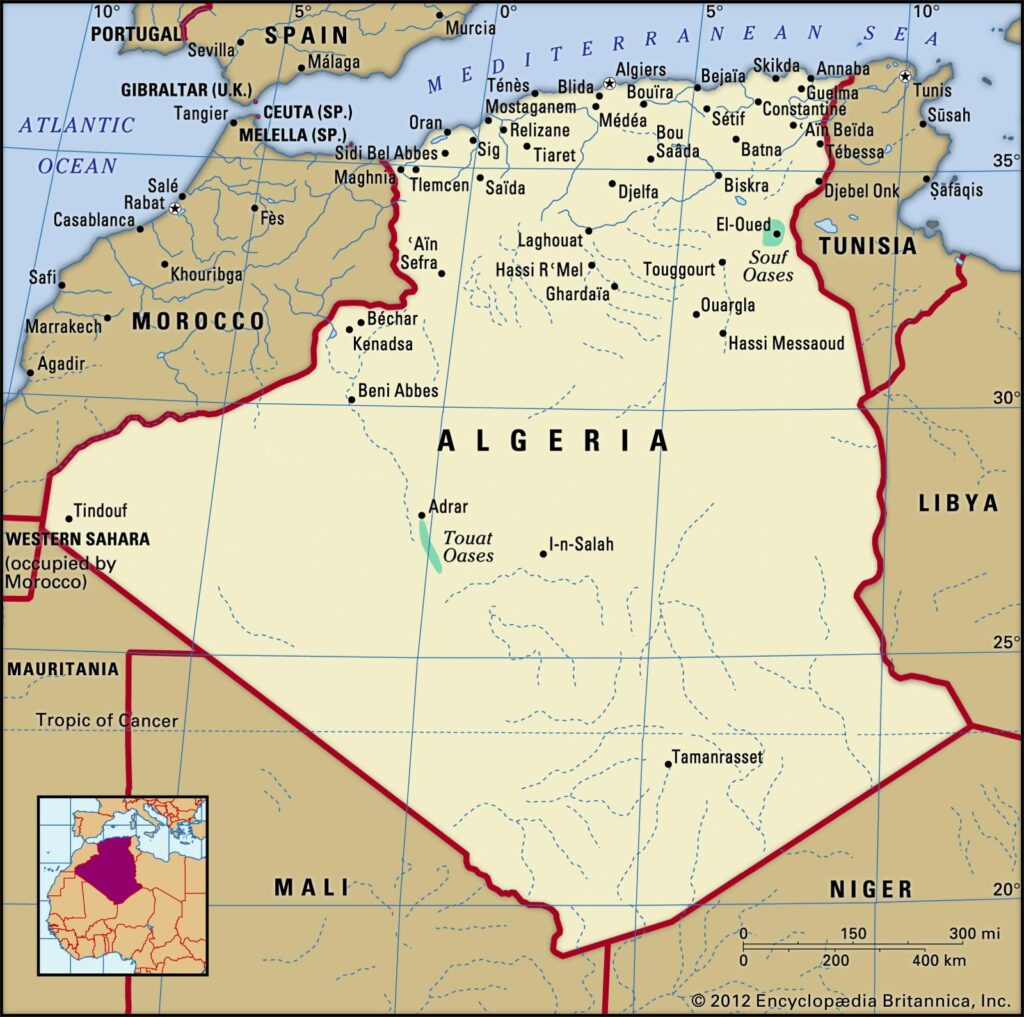Algeria Challenges Ghana’s Changing Position on Western Sahara: Implications for North African Diplomacy
Algeria has recently accused Ghana of modifying its stance on the highly sensitive Western Sahara dispute, a move that adds new layers to the already intricate geopolitical tensions in North Africa. This development, reported by Yabiladi.com, emerges amid ongoing conflicts between Morocco and the Sahrawi Arab Democratic Republic (SADR), which seeks independence from Moroccan sovereignty. Given Ghana’s historical advocacy for self-determination and its diplomatic ties within Africa, this alleged shift raises critical questions about evolving alliances and power dynamics across the region. The repercussions of Ghana’s purported policy change could extend beyond bilateral relations, influencing broader regional stability and diplomatic engagements.
Ghana’s Foreign Policy Shift: Algeria Voices Concern Over Western Sahara Stance
The Algerian government has publicly expressed apprehension regarding what it interprets as a notable alteration in Ghana’s foreign policy concerning Western Sahara—a territory long contested between Morocco and the Polisario Front, backed by Algeria. Recent statements from Ghanaian officials suggest a more cautious or balanced approach toward this conflict compared to their previous unequivocal support for Sahrawi independence.
Key indicators highlighted by Algerian authorities include:
- Enhanced Diplomatic Ties with Morocco: Observers note increased engagement initiatives between Accra and Rabat that may signal warmer bilateral relations.
- Diminished Endorsement of Sahrawi Sovereignty: Official communications from Ghana appear less assertive in backing Polisario Front objectives than before.
- Strategic Realignment Amid Regional Pressures: Analysts speculate that shifting geopolitical currents are prompting Accra to recalibrate its alliances within West Africa and beyond.
An Algerian foreign ministry spokesperson emphasized the importance of maintaining commitment to international law principles regarding self-determination: “We call upon our counterparts in Ghana to uphold their longstanding dedication to justice for the Sahrawi people.” This appeal underscores concerns about potential ripple effects on regional cooperation frameworks if such shifts persist.
The Broader Impact: How Ghana’s New Approach Could Reshape Regional Diplomacy
The transformation in Ghana’s position towards Western Sahara carries significant consequences not only for bilateral ties but also for wider West African diplomacy. By seemingly aligning more closely with Algeria’s perspective—or at least adopting a less confrontational posture—Ghana may influence coalition-building efforts among African states advocating different outcomes for this protracted conflict.
This evolving stance is likely to affect key regional institutions such as the African Union (AU), potentially intensifying divisions between countries supporting Moroccan sovereignty versus those championing Sahrawi autonomy. Some anticipated outcomes include:
- Tensions escalating among pro-Moroccan nations like Egypt or Senegal versus pro-Algerian supporters including Tunisia or Nigeria;
- A resurgence of mediation attempts aimed at resolving disputes peacefully through renewed dialogue platforms;
- A realignment of economic partnerships as countries reconsider foreign investments based on emerging political affiliations related to this issue.
| Nation | Position Regarding Western Sahara | Likely Diplomatic Response | |
|---|---|---|---|
| Ghana | Towards Pro-Algerian Alignment / Balanced Approach | Pursuit of closer collaboration with Algeria; cautious engagement with Morocco | |
| Morocco | Sovereignty over Western Sahara Asserted Strongly | Diplomatic campaigns intensified against shifts favoring SADR support; lobbying AU members actively | |
| Algeria | Sustained Support for Sahrawi Independence Movement | Energized efforts seeking expanded continental backing; calls for adherence to UN resolutions |
Cultivating Pan-African Solidarity: Strategies Toward Resolving the Western Sahara Conflict
A unified front among African nations is essential if lasting peace is ever going to be achieved over Western Sahara. To transcend entrenched national interests requires deliberate coordination through multilateral channels like the AU combined with grassroots peacebuilding initiatives empowering local communities directly affected by decades-long instability.
The following approaches could strengthen collective action:
- Create inclusive roundtable forums involving all stakeholders—including Morocco, SADR representatives, neighboring states—to foster transparent dialogue;
- Mobilize independent fact-finding missions tasked with providing impartial assessments informing policymaking at continental summits;
- Cultivate coalitions committed consistently advocating peaceful negotiation processes while respecting international legal frameworks.
This multi-pronged strategy would enhance mutual trust among disputants while reinforcing Africa’s capacity as an effective mediator rather than allowing external powers disproportionate influence over internal affairs.
The Road Ahead: Navigating Complexities Amid Shifting Alliances
The recent allegations made by Algeria concerning changes in Ghana’s position highlight how fluid diplomatic landscapes remain around contentious issues like Western Sahara. These developments underscore not only challenges but also opportunities—if managed wisely—for advancing dialogue toward resolution.
Bilateral relationships will undoubtedly be tested as each country balances domestic priorities against broader continental aspirations. Close monitoring coupled with proactive engagement remains vital so that emerging fractures do not deepen into prolonged discord.
